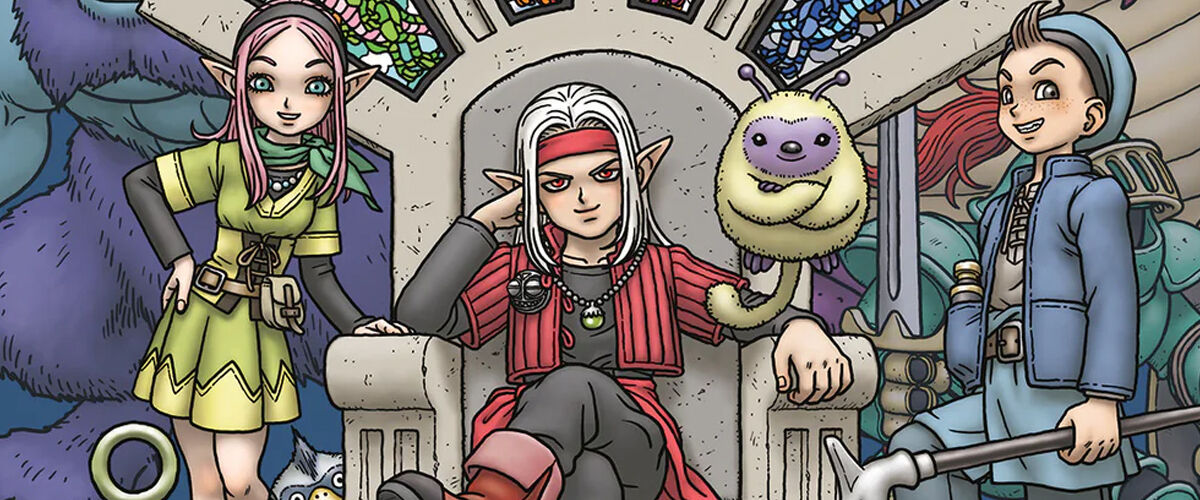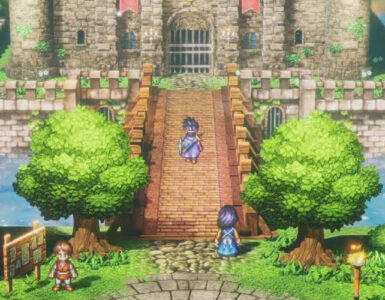Dragon Quest (also known as Dragon Warrior) is an iconic video game series that has captivated audiences for decades, consistently proving itself as a role-playing game franchise with enduring appeal. From its humble beginnings in 1986 to its influential status today, Dragon Quest has left an indelible mark on the gaming world.
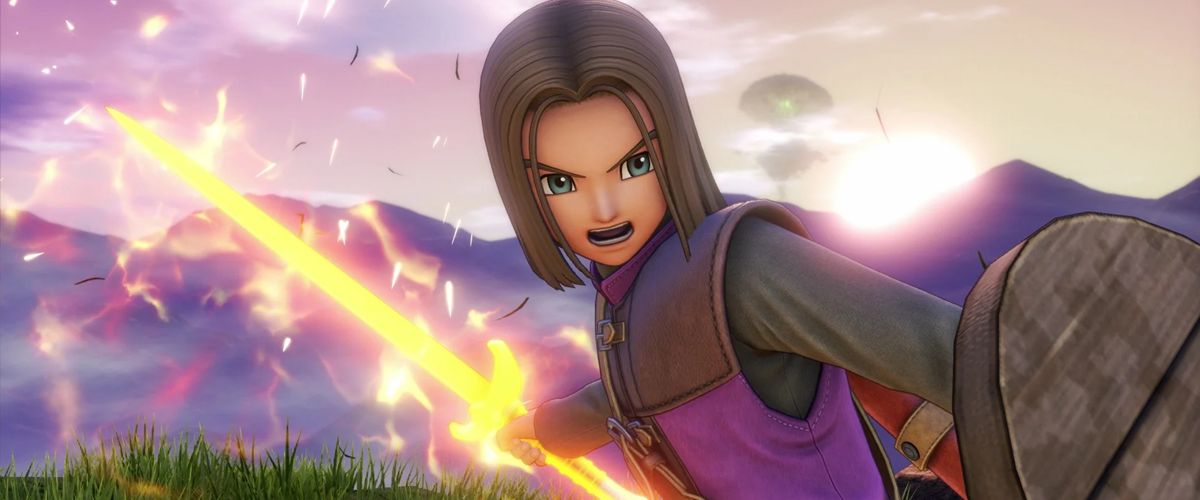
But, how much do you know about Dragon Quest?
Whether you’re a long-time fan or a curious newcomer to the Japanese role-play game (JRPG), discover the rich history that lies at the core of Dragon Quest’s legacy, and the secrets behind its timeless appeal.
Birth of a legend
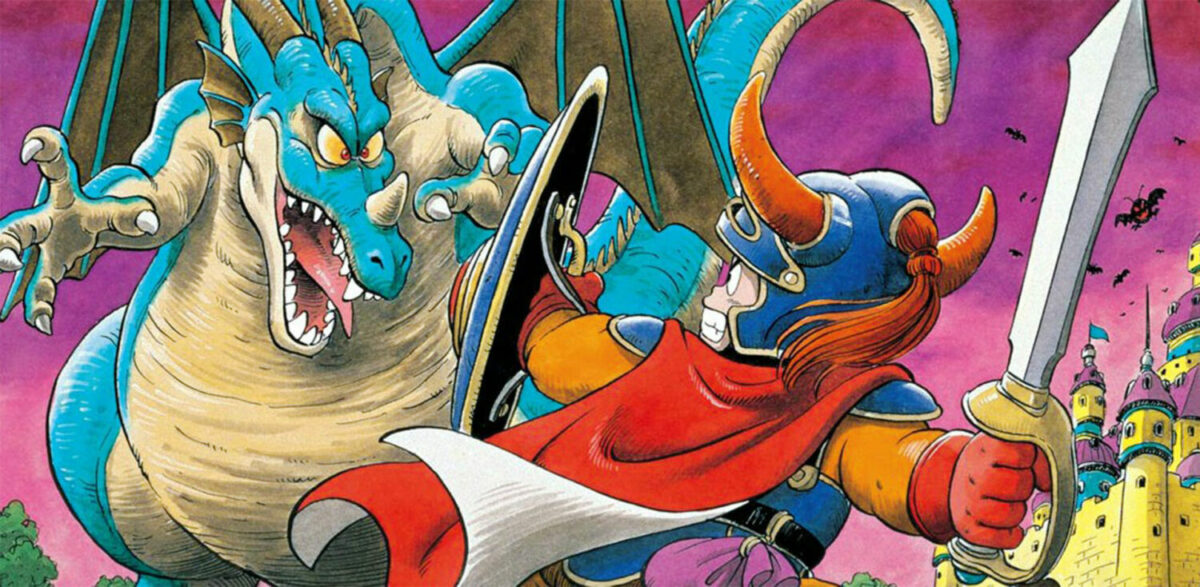
Hatched from the visionary mind of Japanese author and video game designer Yuji Horii, the first Dragon Quest game was released in 1986 by Enix (now Square Enix) during the golden age of 8-bit gaming. Horii was joined by manga artist Akira Toriyama, the mastermind behind the hit anime/manga Dragon Ball, and Japanese composer Koichi Sugiyama.
Toriyama’s whimsical character designs and vibrant visuals permeate every corner of the Dragon Quest universe. The iconic slimes, fearsome monsters, and heroic protagonists (who often resemble memorable Dragon Ball characters) all bear his signature style, and have become synonymous with the series while contributing to its timeless and recognisable identity.
Meanwhile, Sugiyama’s orchestral scores elevated the gaming experience, creating emotional depth and resonance that accompany players on their journey. The series’ main theme, often referred to as ‘Overture’, ignites the grandeur and adventure that the Dragon Quest franchise promises.
These combined creative efforts gave rise to games that introduced players to a fantastical world filled with monsters, magic, and an epic adventure. Its approachable turn-based combat, immersive storytelling, and charming visuals would bring the enduring Dragon Quest series to life for over three decades.
There is one thing worth noting — due to a trademark dispute with tabletop role-playing game DragonQuest by Simulations Publications, and its follow-up, Dungeons & Dragons: Dragon Quest, Enix’s Dragon Quest series went by the name Dragon Warrior in North America until 2005.
Pioneering console RPG mechanics
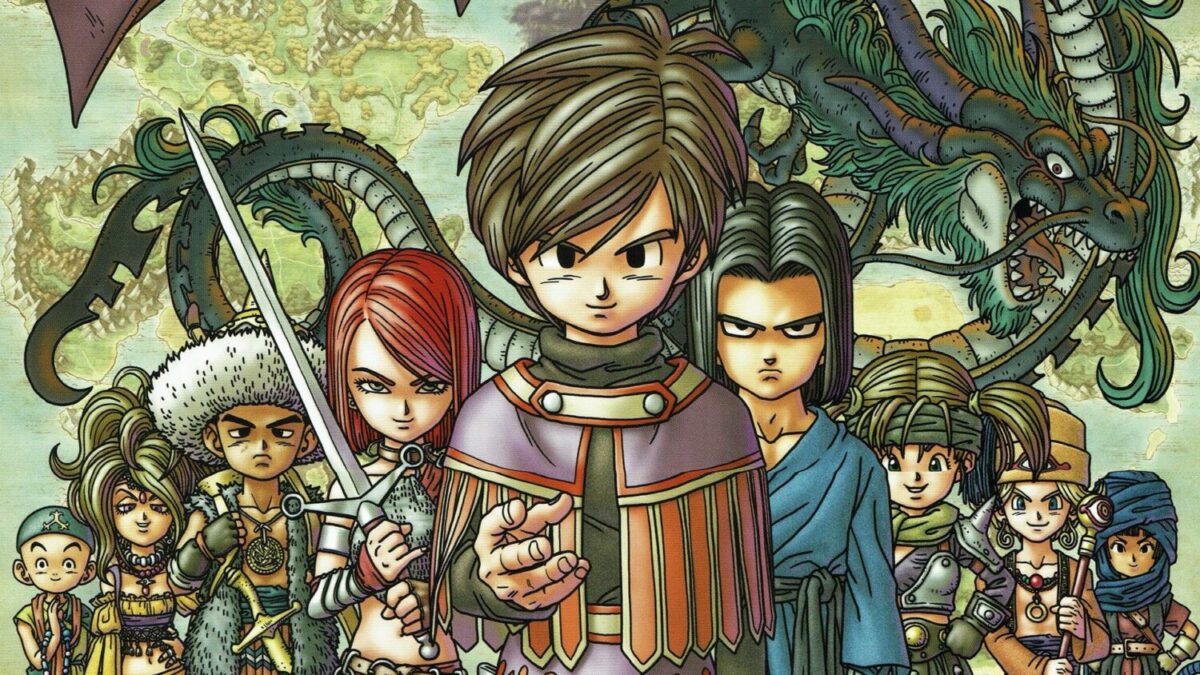
Dragon Quest played a pivotal role in popularising the console JRPG genre. Despite criticisms of the franchise being formulaic, it was Horii’s ingenuity that translated Dungeons & Dragons-esque concepts into accessible role-playing games suitable for all ages, laying the foundation for the genre’s expectations.
In particular, its turn-based combat system, character progression through experience points, and narrative-driven structure set the standard for future RPGs. The series constantly makes tweaks to its mechanics while staying true to its roots, ensuring a sense of familiarity for long-time fans and accessibility for newcomers.
A cultural phenomenon
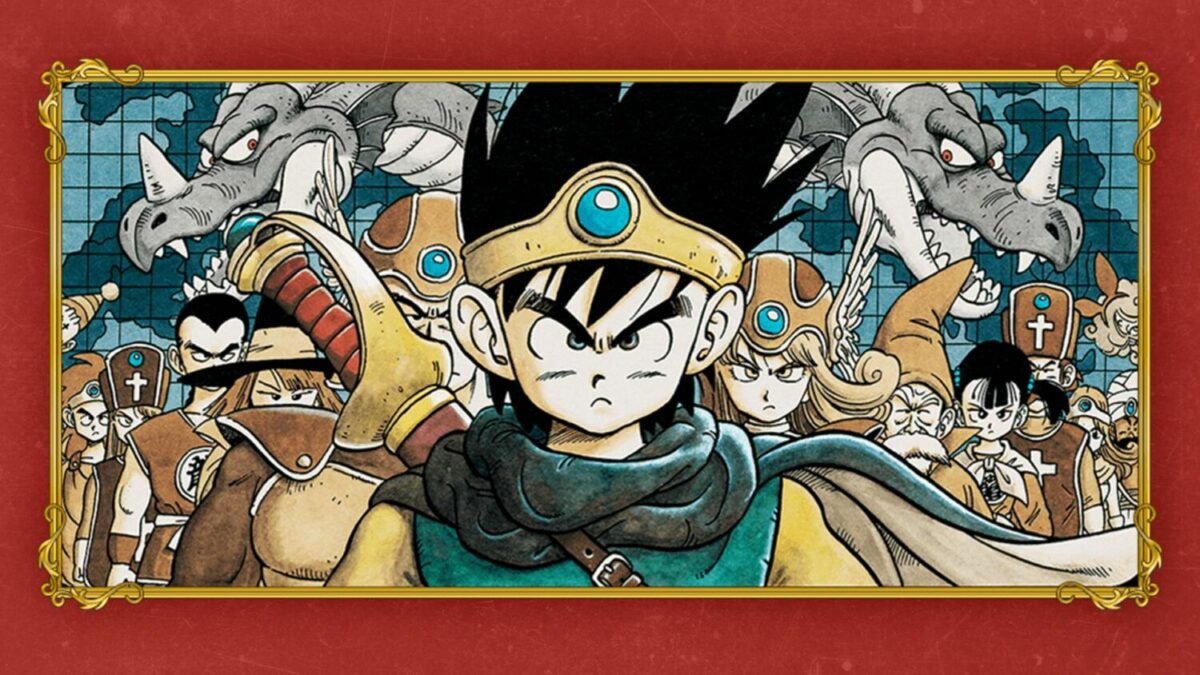
1988’s release of Dragon Quest III in Japan sparked organised chaos, as eager crowds snaked around buildings and bustling streets, eagerly anticipating the release of the revolutionary Famicom game.
This monumental launch gave rise to a captivating urban legend that once reverberated through GameFAQs forums and schoolyards — a law, supposedly enacted by the Japanese government, decreeing that all future Dragon Quest releases must be confined to weekends to avert societal disruption.
While the lore of government intervention may be fiction, the essence of the tale holds a kernel of truth. Enix responded to genuine concerns about school absenteeism and related issues, and all subsequent Dragon Quest release dates (except for Dragon Quest X) were shifted to the weekends, a testament to the game’s cultural impact transcending the digital realm.
Series producer Yū Miyake explained, “Basically, it was the general accepted practice in the industry was to have games shipped out on a Thursday, but there were kids who would skip school to go and buy the games. So we arranged with Nintendo to have Dragon Quest released on a Saturday as a special exception to that.”

Beyond its impact on video game RPG mechanics, Dragon Quest has spawned a number of manga, anime, novels, eateries, live-action ballet and television dramas, musical concerts, audio CDs, a theme park, and more. The early Dragon Quest concerts served as a muse for none other than Nobuo Uematsu, the maestro behind the unforgettable compositions of the Final Fantasy series. Moreover, ‘Roto’s Theme’ from Dragon Quest III found itself on the grand stage of the 2020 Summer Olympics in Tokyo, gracing the opening ceremony as the first notes to set the tone for the spectacular event.
In addition, the Dragon Quest series secured its spot in the 2018 crossover fighting epic, Super Smash Bros. Ultimate via downloadable content in July 2019. It has also inspired and is referenced by various other media, such as Yakuza: Like a Dragon, which saw the franchise shifting from its familiar brawler format to a turn-based RPG, aligning with protagonist Kasuga Ichiban’s profound affinity for Dragon Quest. This new direction resonated so well that it’s a feature poised to carry on in the sequel, Like a Dragon: Infinite Wealth.
Evolving with the times: Balancing tradition and innovation

A mainline Dragon Quest entry has been absent since 2017’s Dragon Quest XI, with its multiple re-releases, contrasting sharply against Square Enix’s (due to a 2003 merger between game publishers Square and Enix) focus on the Final Fantasy series. Recent times have witnessed the Dragon Quest series relying on smaller spin-offs to maintain its foothold and engage the audience.
These spin-offs — including Dragon Quest Treasures, an action RPG spin-off; Dragon Quest Builders, which boasts a Minecraft-style aesthetic with gathering and building elements; the Pokémon Go-like Dragon Quest Walk; and Dragon Quest Monsters, its monster-taming spin-off series — consistently fare well. 2023 saw titles including Dragon Quest Champions, a turn-based RPG adapted for mobile platforms, and the revival of Dragon Quest Monsters with The Dark Prince launching on 1 December. That said, mainline Dragon Quest entries could eclipse their success with a deliberately retro, turn-based RPG approach.

The next mainline entry, Dragon Quest XII: The Flames of Fate, took centre stage during the series’ 35th-anniversary celebration. The game’s director, Takeshi Uchikawa, also directed Dragon Quest XI and had a hand in Dragon Quest Treasures. Treasures‘ distinct style, as well as Breath of the Wild‘s impact, suggest that Dragon Quest XII might align with prevailing industry trends in adopting open world and action-based gameplay.
Equally deserving of attention is the Dragon Quest III HD-2D Remake, which sparked considerable excitement alongside Dragon Quest XII‘s announcement. This is no mere remaster, as considerable effort is invested in creating an Octopath-like experience for Dragon Quest III. The remake’s throwback to the retro era could mitigate concerns surrounding potential genre shifts within the franchise. The status of these two games has remained elusive, with no clear release dates in sight, quietly building fans’ expectations for their arrival.
Ultimately, the Dragon Quest franchise remains strong. As fans embrace the series for its power fantasy and escapism, the bar for Dragon Quest XII and Dragon Quest III HD-2D Remake to emulate the towering success of its predecessors is higher than ever. In the meantime, the series stands as a testament to the timeless magic that well-crafted RPGs can bring to the world of gaming.

